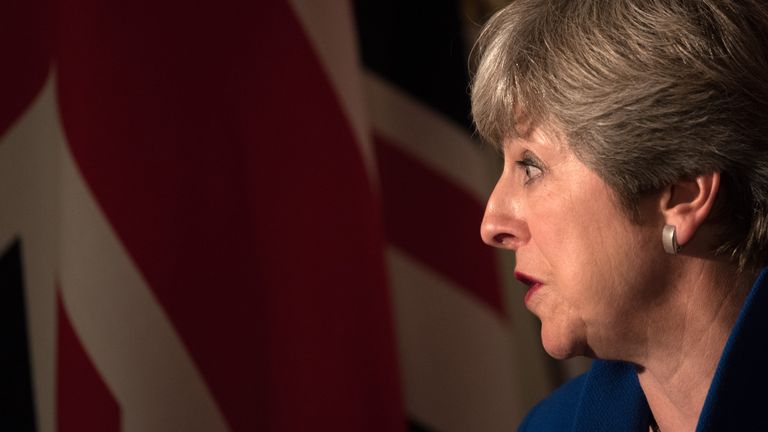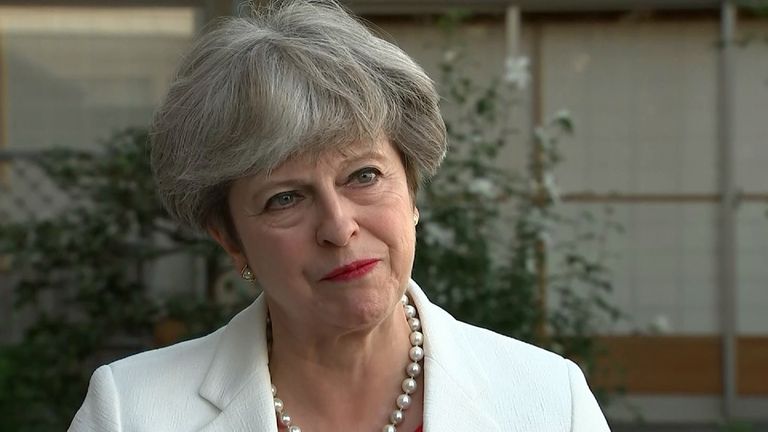Will Theresa May be a 'bloody difficult woman' to remove? It seems so
Ken Clarke famously described Theresa May as "bloody difficult" - now the PM has chosen to be bloody difficult to remove.
Friday 1 September 2017 10:27, UK
I'll admit I was rather shocked by Theresa May's answer to my question over whether she wanted to fight the next general election.
She responded with .
Firstly, she'd not said it before; secondly, it was an unequivocal answer to a direct question by a Prime Minister who often avoids and deflects with planned soundbites, not always relevant to the enquiry.
::
Then I was left wondering, what choice did she have? At some point the Prime Minister had to put this question to bed. With reports, perhaps 'fake news', suggesting she'd set a date to resign - it was time to take a position.
If she'd confirmed she was making a mid-term exit, after Brexit, that would have fired the gun for a two-year leadership race, immediately undermining her authority.
So if she does eventually quit then, like her disastrous election, it has to be a snap decision.
It could, however, also be the political determination of a woman described by Ken Clarke as "bloody difficult" and who has chosen to be bloody difficult to remove.
After all, she's waited long enough for the job - and a lot can be learned from her opposition leader about blanking out the negative voices.
She will have to do that today. Former cabinet minister Nicky Morgan, former party chair Grant Shapps and Tory grandee Michael Heseltine all expressed surprise at her determination to go on. The critics tend to come from the Remain camp and supporters from the Eurosceptic side of the party.
Those vocally supporting Mrs May include John Redwood, Boris Johnson and Peter Bone, who says she will "emerge a national hero" if she delivers Brexit.
On that subject, the Japan trip is having mixed results. Mrs May appears to have a reassurance from her counterpart Shinzo Abe that he will work toward a free-trade deal with the UK based on the EU deal once that has been has been concluded.
He also made positive sounds about continued investment in the UK after Brexit - but made clear that Japanese companies saw the UK as a "gateway to the EU" and they would be would be "watching carefully" how the UK approaches Brexit.
Mr Abe's main concern seemed to be "minimising the impact of Brexit". He asked Mrs May for "transparency and predictability" during her EU exit negotiation.
It's clear the Japanese PM sees Brexit as a damage limitation exercise - and as it happens that is what's going on in the Conservative Party right now following Mrs May disastrous snap election.
Big questions remain over whether that includes restructuring at the top.






